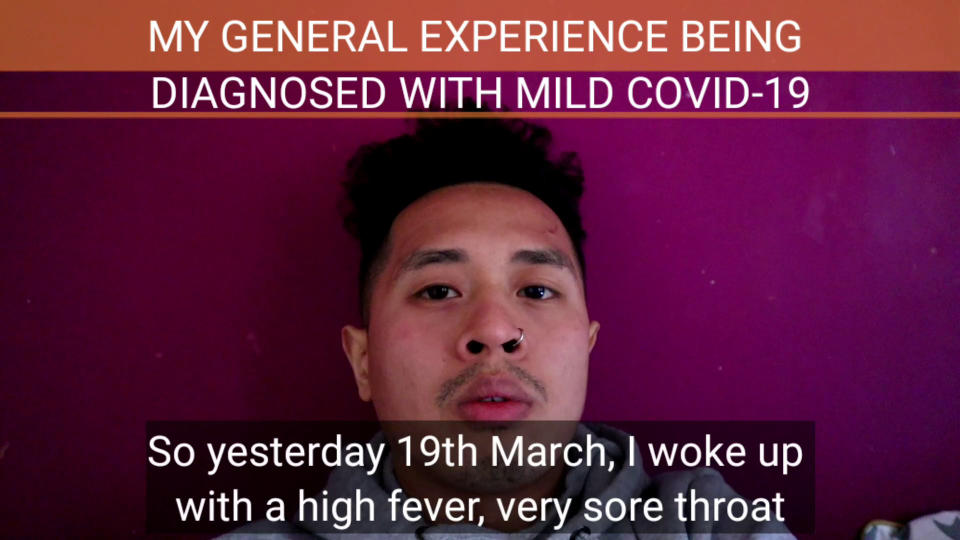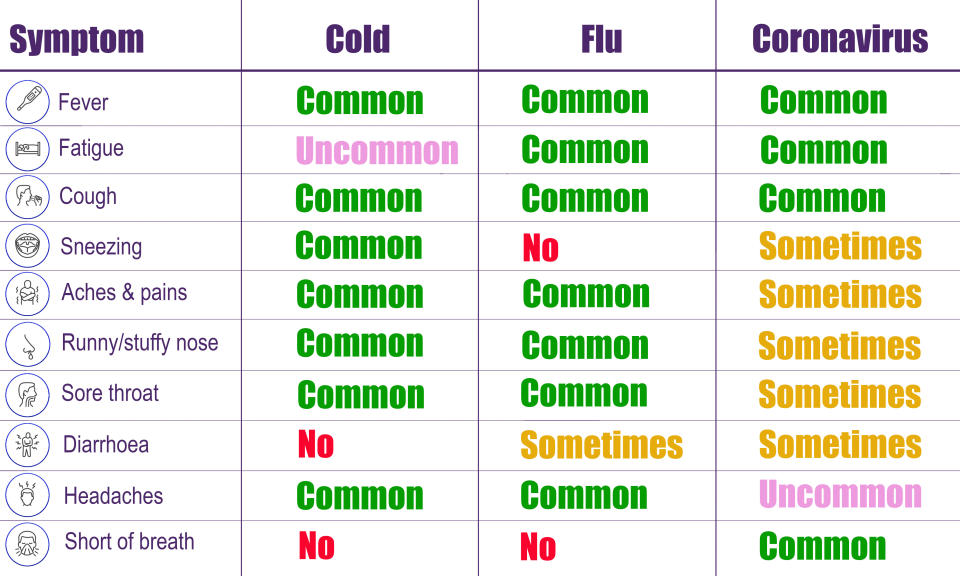Healthy father, 29, with 'mild' COVID-19 warns 'it's really not a joke'
A healthy 29-year-old man struck down with the coronavirus is urging other young people not to assume they are immune to the infection.
Daryl Doblados woke on Thursday with a sore throat and aches all over his body, which quickly progressed into a fever and severe shortness of breath.
Within 15 minutes of calling the non-emergency number NHS 111, an ambulance arrived at his home in Littleport, Cambridgeshire.
After a series of blood tests and X-rays, Doblados was diagnosed with a mild case of COVID-19, a disease that can be triggered by the coronavirus.
Now in isolation at home, the father-of-two is still breathless and feels like his “lungs are filling with smoke or liquid”.

Latest coronavirus news, updates and advice
Live: Follow all the latest updates from the UK and around the world
Fact-checker: The number of COVID-19 cases in your local area
Explained: Symptoms, latest advice and how it compares to the flu
Speaking to other young people, Doblados said: “Don't take this for granted, it's really not a joke.”
His warning comes after Boris Johnson urged all Britons, regardless of their age or health, to avoid social contact.

Images have surfaced of busy parks and transport systems, suggesting certain members of the public are flouting the guidelines.
Early research suggests the coronavirus is mild in four out of five cases, with the vast majority of deaths occurring among the elderly or already ill.
Nevertheless, all Britons have been urged to stay indoors to prevent the virus spreading to the most vulnerable.
“For healthy young people out there, do what you can to make sure you don't spread the infection all around,” said Doblados.
“It's going to spread if we don't start taking it seriously and staying indoors.”

Doblados was rushed to Addenbrooke's Hospital, where he was diagnosed eight hours later.
As well as being told he had mild COVID-19, doctors also spotted signs of tonsillitis, which is thought to have triggered his sore throat.
While most of his symptoms have eased, the project manager still struggles with breathlessness.
“The worst thing has been the shortness of breath, I can't even string a sentence together without taking a gasp of air,” he said.
“I really feel for those who have contracted the virus and developed severe or critical cases.
“For me, it's not great, but I am able to handle this.”
Doblados is only able to see his four-year-old daughter and two-year-old son from the doorway of his bedroom.
Guidelines state anyone with the tell-tale fever or cough should isolate for seven days, while everyone else in their household should stay indoors for two weeks.
While he recovers, Doblados has praised his partner, Philippa Franklin, 29, for being a “hero” and looking after the children.
He has also thanked the “absolutely amazing” NHS staff who treated him.
“The NHS are under-resourced at this time, but they're working tremendously hard and they have always been supportive,” said Doblados.
“They deserve all the glory once this is all over.”
Although Doblados called NHS 111, the public are being urged to use its website due to the service being under strain.
What is the coronavirus?
The coronavirus is one of seven strains of a class of viruses that are known to infect humans.
Others include the common cold and severe acute respiratory syndrome (Sars), which killed 774 people during its 2002/3 outbreak.
The coronavirus is thought to have emerged at a seafood and live animal market in the Chinese city of Wuhan at the end of last year.
It has since spread into more than 160 countries across every inhabited continent.
Since the outbreak was identified, more than 349,000 patients have been confirmed, of whom over 100,000 have “recovered”, according to John Hopkins University.
Globally, the death toll has exceeded 15,300.
While most cases are mild, pneumonia can come about if the infection spreads to the air sacs in the lungs, causing them to become inflamed and filled with fluid or pus.
The lungs then struggle to draw in air, resulting in reduced oxygen in the bloodstream and a build-up of carbon dioxide.
The coronavirus has no “set” treatment, with most patients’ immune systems fighting off the virus naturally.
In severe cases, hospitalisation may be required if a patient needs “supportive care”.
This may include ventilation while their immune system gets to work.
Hand-washing and social distancing are thought to be the best ways to ward off infection.




